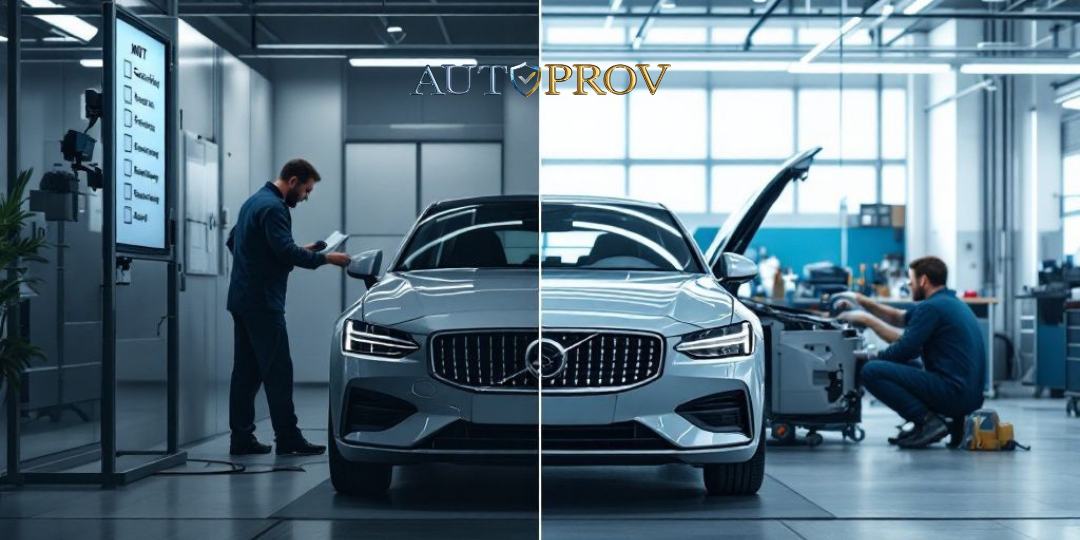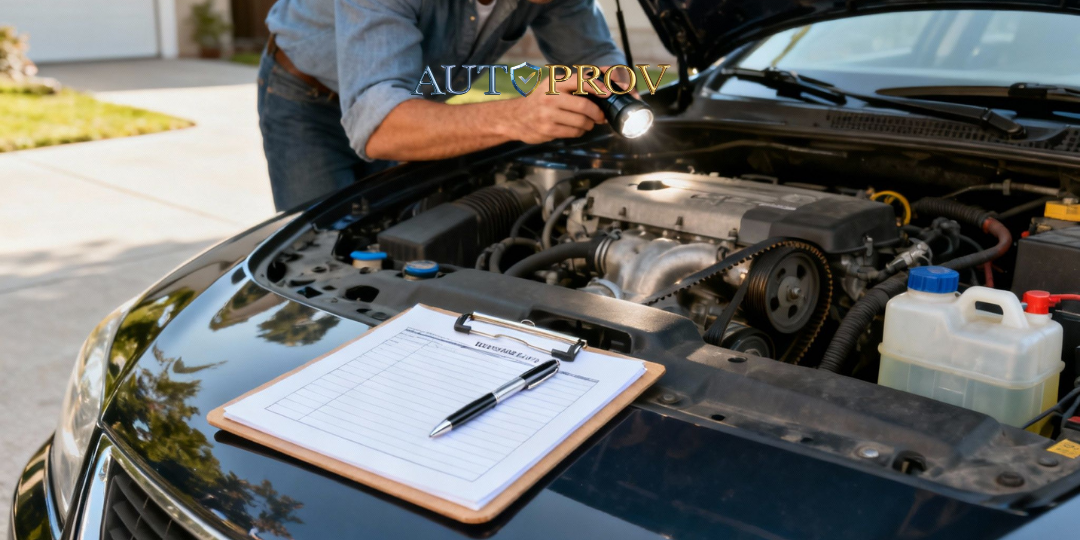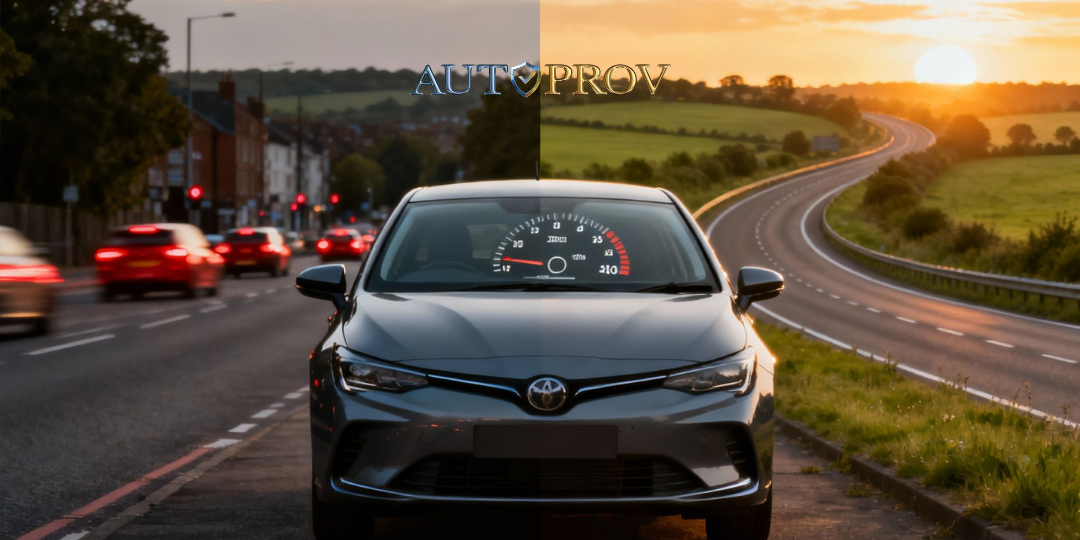
Navigate the UK used car market with confidence using our comprehensive buying guide. Tips, checks, and AutoProv Provenance insights included.
Buying a used car in the UK can be a thrilling yet daunting experience. With countless options available, it's essential to arm yourself with the right knowledge to make an informed decision. This guide will take you through every step of the process, from understanding your needs to performing crucial checks, including the invaluable AutoProv Provenance check services.
Understanding Your Needs
Assessing Your Requirements
Before diving into the market, take a moment to consider your needs. Ask yourself the following questions:
- What is your budget?
- How will you use the vehicle (commuting, leisure, etc.)?
- Do you have a preference for a specific make or model?
- How many passengers do you need to accommodate?
Setting a Budget
Establishing a budget is crucial. Consider not only the purchase price but also ongoing costs like insurance, road tax, and fuel. In the UK, road tax varies based on CO2 emissions, so factoring this into your budget is wise.
Researching the Market
Online Platforms
Utilising online platforms such as AutoTrader, Motors.co.uk, and eBay Motors can help you compare prices and find a selection of vehicles that meet your criteria. Look for filters that allow you to specify price ranges, mileage, and other features.
Local Dealerships and Private Sellers
Consider both dealerships and private sellers. Dealerships may offer warranties and financing options, while private sellers often have lower prices. Whichever path you choose, understanding the pros and cons of each is key.
Checks Before Purchase
Vehicle History Checks
Before committing to a purchase, it’s vital to conduct a vehicle history check. This can reveal important information such as whether the car has been stolen, written off, or has outstanding finance. Services like AutoProv are excellent for this purpose, providing a thorough check of the vehicle's background.
MOT and Service History
Check the MOT status and service history. A valid MOT certificate is necessary for road legality in the UK. Ensure that the car has been serviced regularly; a well-maintained vehicle is less likely to have underlying issues.
Conducting a Physical Inspection
Exterior and Interior Checks
When inspecting the car, look for signs of damage, rust, or mismatched paint, which could indicate previous accidents. Inside, check for wear and tear on the upholstery, functioning electronics, and cleanliness.
Test Driving the Vehicle
A test drive is a crucial step. Pay attention to how the car handles, sounds, and performs. Listen for unusual noises and test brakes and acceleration. Ensure the vehicle feels comfortable and meets your driving needs.
Understanding the Legalities
DVLA and Registration
Once you’ve decided on a vehicle, you’ll need to register it with the DVLA. Ensure that the seller provides you with the V5C registration certificate, and double-check that the details match the vehicle.
Insurance and Road Tax
Before driving your new car, you must have valid insurance. Shop around for competitive quotes and consider factors like coverage types and excess amounts. Additionally, ensure that you pay the appropriate road tax based on the vehicle's CO2 emissions.
Negotiating the Price
Making an Offer
Once you’ve completed your checks and are satisfied with the vehicle, it’s time to negotiate. Use your research and any issues found during the inspection as bargaining chips to lower the price.
Final Steps
Completing the Sale
When finalising the sale, ensure that all paperwork is in order. This includes the service history, MOT certificates, and any warranties. Always get a receipt for your purchase.
Post-Purchase Considerations
After buying your car, consider investing in a thorough inspection by a trusted mechanic. This can help identify any potential issues early on. Additionally, keep all paperwork organised for future reference.
Buying a used car in the UK can be straightforward if you follow these steps and conduct thorough checks. With services like AutoProv at your disposal, you can ensure that you’re making a sound investment. Happy car hunting!
Frequently Asked Questions
AI-Generated Content Notice
This article was created with the assistance of artificial intelligence technology. While we strive for accuracy, the information provided should be considered for general informational purposes only and should not be relied upon as professional automotive, legal, or financial advice. We recommend verifying any information with qualified professionals or official sources before making important decisions. AutoProv accepts no liability for any consequences resulting from the use of this information.
Related Articles

Difference Between MOT and Service: What You Need to Know
An MOT is a mandatory legal inspection that every car on UK roads needs to pass.Think of it as the government's way of ensuring your vehicle meets the absolute minimum safety and environmental standards to be considered roadworthy. A service, on the other hand, is a completely different beast. It's the proactive maintenance routine recommended by the people who built your car, designed to keep it running smoothly and catch problems before they start. In short, an MOT is a pass-or-fail exam required by law. A service is a comprehensive health plan for your car.

Your Ultimate Used Car Inspection Checklist
A solid used car inspection checklist is the single most powerful tool you have to avoid buying a lemon. It gives you a methodical way to look past the shiny paint and assess a car's real condition, helping you spot hidden problems and get a fair price before you shake hands on the deal.

What Is a Good Mileage for Used Cars? Top Tips as a UK Buyer
When you're hunting for a used car, one of the first things you’ll probably look at is the mileage. It's a quick, easy number to latch onto. But what actually counts as ‘good mileage’ in the UK?
Published by AutoProv
Your trusted source for vehicle intelligence

